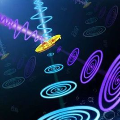Harnessing the potential computational advantage of quantum computers for machine learning tasks relies on the uploading of classical data onto quantum computers through what are commonly referred to as quantum encodings. The choice of such encodings may vary substantially from one task to another, and there exist only a few cases where structure has provided insight into their design and implementation, such as symmetry in geometric quantum learning. Here, we propose the perspective that category theory offers a natural mathematical framework for analyzing encodings that respect structure inherent in datasets and learning tasks. We illustrate this with pedagogical examples, which include geometric quantum machine learning, quantum metric learning, topological data analysis, and more. Moreover, our perspective provides a language in which to ask meaningful and mathematically precise questions for the design of quantum encodings and circuits for quantum machine learning tasks.
翻译:暂无翻译




